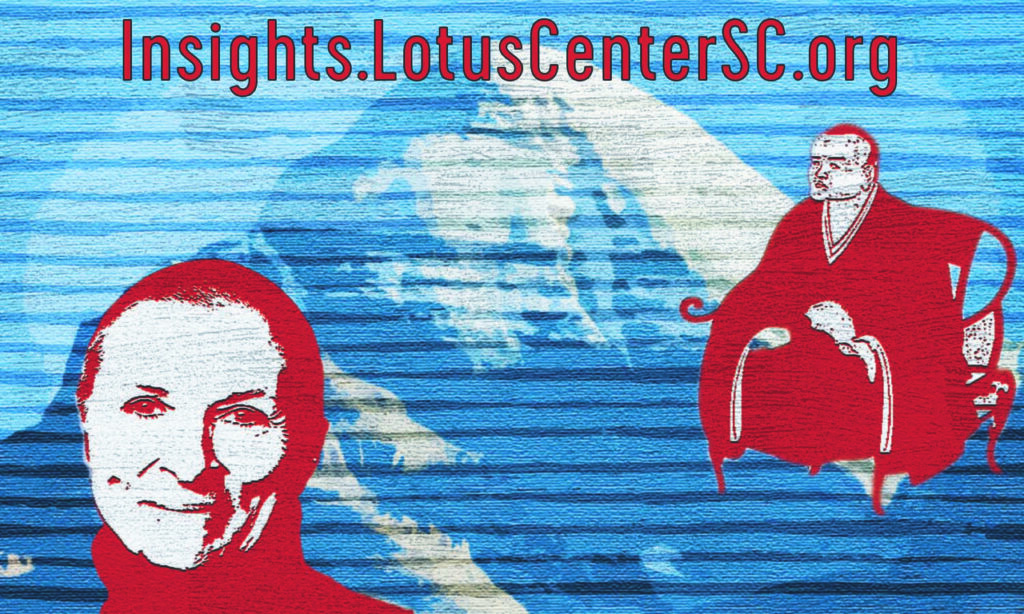The Bodhisattva Ideal in these Unprecedented Times

Delusions are inexhaustible, I vow to transform them
Reality is boundless, I vow to perceive it
The awakened way is unsurpassable, I vow to embody it.
I always experienced my third Zen teacher Bernie Glassman as being radically generous of mind and heart, sitting with “not knowing” and bearing witness to the joys and suffering of this world, and from this responding with compassionate action.
Realizing the Bodhisattva Ideal is about being authentic, real, raw, wide open, free of views, intimate, and willing to be broken apart and to repair oneself and each other. Most importantly it is about having the imagination to see things as not necessarily perfect but as complete, as whole, and to imagine a repaired, a healed, and inclusive self; and a world of possibilities, based on the natural richness that arises from resting in radical openness, along with the courage to penetrate the truth of suffering, see it, not flee it, and imagine what liberation can be like for all who suffer.
I also often think about Jizo Bodhisattva who is not afraid of going to hell. Hell is not only the charnel grounds where Bernie practiced and where I have served; hell is also between our ears…. the rage, self-righteousness, disgust, grasping, and hatred that springs up like poisonous mushrooms from the ground of fear. Our country is now in the increasingly tight grip of polarization and fear. We must do better than this and learn from the current chaos and mean-spiritedness that is so pervasive. Like what I learned from Bernie at Auschwitz, we can meet this suffering world with more courage, wisdom, compassion, and imagination.
Every day, I remember that Avalokiteshvara does not put their hands over their ears as the cries of the world well up into the atmosphere. Their heart and ears are wide open to the sounds of suffering and they respond selflessly to the sounds of suffering echoing in every quarter. Samantabhadra isn’t self-righteous, but naturally engages in kind and awakened action. Manjushri isn’t caught in conceptual frameworks as a way to defend themselves against direct experience. Their sword of perception is their ally and ours as well, as they cut through the causes of suffering. The Bodhisattva knows that there is no ground to stand on. That every moment is groundless, radically uncertain, and full of possibilities.
The 13th century Zen master Eihei Dogen wrote that “Once the heart is grasped, you are like the dragon when they gain the water, like the tiger when they enter the mountain.” The Bodhisattva is at home and intimate no matter where they are, whether the charnel ground or the Pureland. This is why the Bodhisattva dwells in the boundless space of no fear, and this is how the Bodhisattva also dwells in the embrace of intimacy.
This is our home ground as well. Can we recognize this, actualize this? I think so. We have the Bodhisattva attitude accessible to us, if we but look, if we but feel, if we but let ourselves discern deeply and bravely.
Roshi Norman Fischer has shared that the “bodhisattva attitude” is an unshakeable attitude of clarity that reflects our very character. This is our stance, our point of view. It is the internal atmosphere that colors our way of seeing the world, of seeing reality. And I keep reminding others that this is an attitude saturated by appamāda… by care, conscientiousness, and compassion. We can do this, and we must do this now.
This is what we encounter in the undivided experience of genuine practice and service, and what it means to be in our natural habitat of complete belonging to this very moment, of intimacy, integrity, deep mutuality, and courage. Of giving no fear. And of realizing completely the attitude, vows, and ideals of the Bodhisattva. This is about one’s basic character, about our fundamental integrity. This is actualizing the interconnection of the inner calm of wisdom and the outer actions of compassion in our lived experience.
May we meet our lives and this world with integrity, courage, love, and compassion. Or as the Zen teacher Yunmen advised a monk who asked: “What is the teaching that Shakyamuni Buddha preached throughout his life?” Yunmen replied: “An appropriate response.” Yes, may we actualize an appropriate response to the suffering in ourselves and the world and actualize the vision of Shantideva in our lived experience:
and as long as beings remain,
may I to remain
to end the sorrows in this world.
Rev. Joan Jiko Halifax

